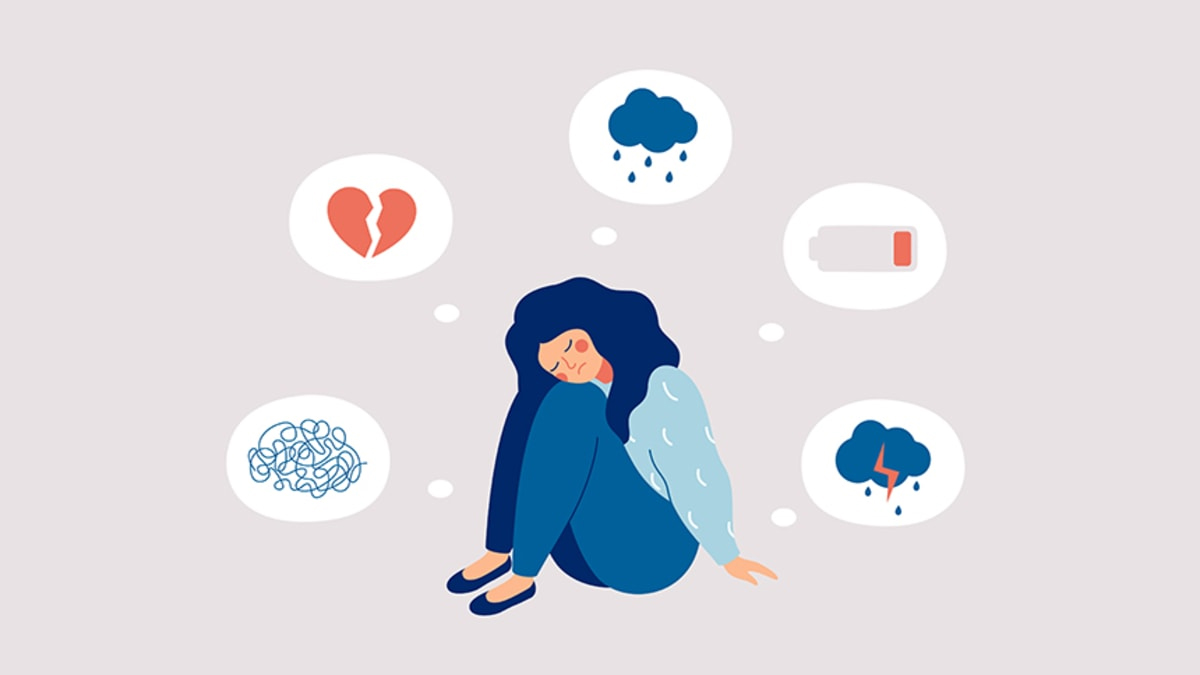Understanding mental health problems | MyndzMatter
July 29, 2023

Mental health problems affect millions of people worldwide, yet a startling reality persists: the majority of individuals grappling with these issues go untreated. By exploring the barriers that hinder access to treatment, the consequences of leaving mental health conditions untreated, and the urgent need for systemic changes, we can pave the way for a more supportive and inclusive mental health landscape. This article aims to shed light on the complex reasons behind the prevailing crisis of untreated mental health problems.
1. Stigma and Lack of Awareness: Obstacles to Seeking Help
Stigma continues to be a significant deterrent to seeking mental health treatment. Individuals facing mental health challenges often encounter judgement, prejudice, and misconceptions from society. Fear of discrimination and social isolation compels many to conceal their struggles, preventing them from seeking the support they need. Furthermore, limited public awareness and understanding of mental health perpetuate the stigma surrounding these conditions, impeding early intervention and treatment.
2. Inadequate Access to Mental Health Services: A Barrier to Care
A considerable obstacle to receiving treatment for mental health problems lies in the inadequate access to services. Many communities, particularly those in low-income or rural areas, lack sufficient mental health infrastructure. The scarcity of resources, including mental health professionals, clinics, and support systems, creates a substantial disparity between the demand for treatment and its availability. This treatment gap severely affects marginalised populations, exacerbating existing health inequalities.
3. Financial Constraints: The Cost of Inaccessibility
The financial burden associated with mental health treatment poses a significant barrier for many individuals. High treatment costs, coupled with limited insurance coverage and constrained financial resources, prevent access to essential care. As a result, individuals may forgo necessary treatment or resort to inadequate alternatives, perpetuating the cycle of untreated mental health problems.
4. Inadequate Screening and Diagnosis: Identifying the Invisible
Failure to screen and accurately diagnose mental health conditions contributes to the crisis of untreated mental health problems. Some mental health disorders present with subtle or atypical symptoms, leading to misdiagnosis or overlooking the issue entirely. Insufficient training or awareness among healthcare professionals regarding mental health disorders
can hinder early identification and appropriate treatment, resulting in delayed or inadequate care.
5. Fragmented Healthcare Systems: Disconnecting the Dots
Fragmentation within healthcare systems can impede the detection and treatment of mental health problems. Lack of coordination and communication between different healthcare providers and departments often results in a disjointed approach to mental healthcare. This fragmentation makes it challenging for individuals to navigate the complexities of accessing comprehensive mental health services, hindering the delivery of timely and integrated care.
6. Self-Stigma and Reluctance to Seek Help: Breaking the Silence
In addition to societal stigma, individuals battling mental health problems may experience self-stigma. They may blame themselves for their condition or feel ashamed to seek help, perpetuating the cycle of untreated mental health problems. Encouraging open conversations about mental health, fostering supportive environments, and providing education can help break down the barriers of self-stigma and promote help-seeking behaviors.
The prevalence of untreated mental health problems represents a silent crisis that demands immediate attention. To address this crisis, concerted efforts are needed from governments, communities, healthcare organizations, and individuals alike. It is crucial to combat stigma, increase awareness, and improve accessibility to mental health services. By implementing comprehensive reforms, we can create a society that prioritizes mental well-being and ensures that no one is left behind. Together, we can pave the way for a future where individuals receive the care and support they need to lead fulfilling and mentally healthy lives.
If you or someone you know is seeking therapy or counseling, visit myndzmatter.com for professional support and take the first step toward a healthier and happier life.
